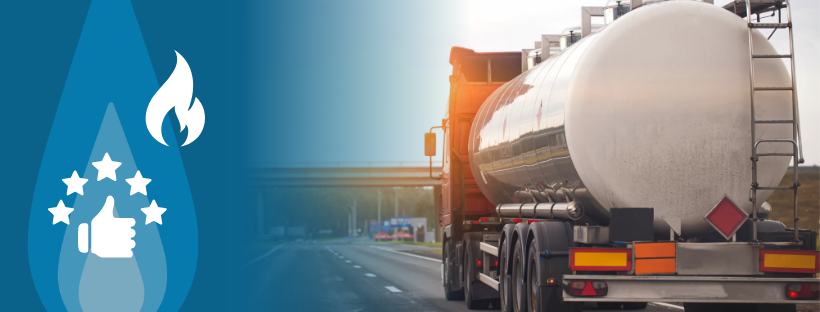It’s important to look beyond propane prices to dependability and service
Price is an important factor when it comes to choosing a new propane gas supplier to fuel your home. But the truth is, your propane company should serve you with more than fair prices.
Your propane gas company is an important player in keeping your home and family secure – with working heat, functioning appliances, and reliable service in the event of an emergency.
10 Questions You Should Ask When Shopping for a New Propane Supplier
1. Do you offer automatic delivery?

Automatic propane delivery keeps your home fueled without you needing to worry about checking your tank—ever! A propane company should have the ability to keep track of your usage through a monitor or other device and schedule timely deliveries so you don’t have to.
2. Do you offer online or automatic payment options?
The convenience of online or automatic payments can’t be ignored. It simplifies the payment process on both ends! Ensure your propane supplier offers flexible payment methods that fit your preferences and schedule.
3. Do you lease tanks, or do I have to purchase my own?
Leasing vs. Buying propane tanks is a very important consideration, especially when it comes to switching propane companies.
- Leasing tanks offers the convenience of lower initial costs and maintenance covered by the propane company. You usually must purchase propane from the supplier that leases your tank. Switching suppliers will result in the termination of the lease.
- Buying a tank is more expensive up front (approximately $1,500 for a 500-gallon underground propane tank), but you have the freedom to shop around for propane. Most companies are happy to work with you on maintenance if you purchase propane from them.
Evaluate which option aligns best with your needs and preferences.
4. How can I transfer ownership of the leased tank if I change propane companies?
Sometimes, the propane tank itself is owned by the propane company. Ask what their policy is to help yourself avoid the hassle of excavation and reinstallation. Clear communication with your current and future suppliers ensures a seamless transition without excavation or reinstallation headaches.

5. Do you have any special installation offers?
Tank installation can cost $500-$1,000. Ask your propane supplier if they have any special offers for new customers—it is an investment for them!
6. Is my propane tank or other appliance under warranty?
A warranty on your propane tank or appliance will save you time and money in case something goes wrong. Ensure your propane supplier offers comprehensive warranty coverage, providing you with peace of mind and financial protection.
7. Do you offer maintenance for my other propane appliances, such as my hot water heater, stove, or fireplace?
A one-stop shop is always convenient! If that is important to you, ask your propane company if they are able to handle simple repairs on other appliances around your home.
8. Can you hook my propane tank up to my propane generator?
When the power goes out—you want to keep your home running. Ask if the company offers options to fuel your propane generator. Kauffman Gas offers a special generator program with automatic refills.
9. Do you offer a pre-buy propane program at a fixed rate for winter?
Pre-buying propane at a fixed rate can potentially save you hundreds when winter prices spike to their seasonal peak. Explore budget-friendly options that provide stability and predictability in your propane expenses, especially when prices spike.
10. What is your safety record?
Finally, you should ask the company about their commitment to safety. Propane is a safe fuel, but mishandling it has severe consequences. Inquire about the company’s safety record, employee training, and equipment inspections to ensure reliable and secure propane services for your home. Your propane supplier should also be able to educate you about propane gas safety, signs of leakage, and what to do in the event of an emergency.
Other things to check out
- Testimonials – Check Facebook, Yelp, Google Plus, Angie’s List, and other sites to see what actual customers had to say. Good companies will have reviews that praise their customer service from customers who have been loyal for many years. Look for the good AND the bad. They both tell a story!
- Social Activity – Does it look like people like engaging with the company? Or is it a one-way conversation? When customers are engaged, it shows the company is valued.
- Better Business Bureau – If there have been formal complaints filed with the BBB, this should be a major red flag.


I own my tank but would like to replace it. Can you install a new tank and haul away the old one?
My current tank is 250gal.
Hi Jacquelyn,
If you are in our service area (Southeastern PA and northern DE), we can do that. Feel free to contact us. https://www.kauffmangas.com/contact/